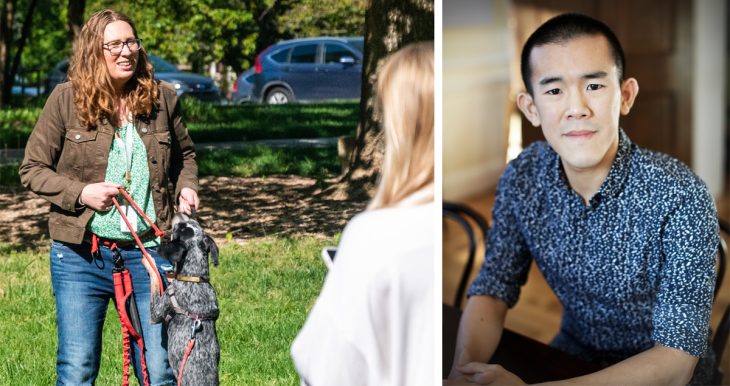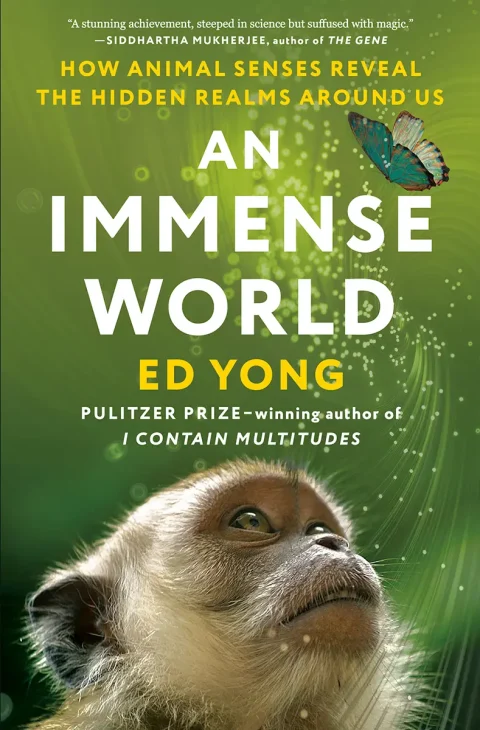
The last sentence of Charles Darwin’s “On the Origin of Species” includes the phrase “endless forms most beautiful.”
He’s referring to how organisms evolved their awesome variety from simple beginnings — and it’s how Transylvania University professor Ellen Furlong ’03 describes the sensory world of animals. (Another professor from her school, Constantine Samuel Rafinesque, is actually quoted near the beginning of Darwin’s magnum opus.)
Furlong is looking forward to the Feb. 15 Kenan Lecture with Ed Yong at 7 p.m. in Haggin Auditorium. The Pulitzer Prize-winning science writer will discuss “An Immense World,” exploring the sensory realms of animals that lie outside the scope of our own experience. The next morning from 9:30-10:20 in Carrick Theater, he will join Furlong for an informal follow-up talk.
The public is invited to both events. Reserve your free tickets.
Furlong is encouraging her Dog Cognition students to attend both discussions, especially because of the class’ focus on science communication. “I want them to see somebody who is a master of this, a Pulitzer Prize winner,” she said.
Also attending the events will be her father, philosophy professor emeritus Jack Furlong, along with a University of Kentucky lifelong learning class he’s leading called Conscious Creatures Everywhere? ‘Reading An Immense World’ (it’ll be offered at Transylvania in February and March).
“The more that people learn the ways our little critters perceive the world, the more we can appreciate those kinds of ‘endless forms most beautiful,'” said Ellen Furlong, whose canine cognition lab is opening on Transylvania’s campus in the next few months.
The psychology professor added that we tend to think of ourselves as the pinnacle of evolution. “But when we actually stop and look around at how other animals interact with the world and perceive the world, it is shockingly cool and beautiful.”

Furlong used an analogy of Barnard professor Alexandra Horowitz to emphasize the sensitivity of a dog’s sense of smell, which is up to 100,000 times better than ours. While we may notice if our coffee has a teaspoon of sugar in it, a canine could detect the same amount in a million gallons of water — enough to fill two Olympic-size swimming pools. (And because of the way their brains are wired, dogs may be able to experience smell as a visual phenomenon.)
This points to the kind of wonder Yong has in store for his Kenan Lecture.
The talk is based on his book “An Immense World,” which earned a spot on the New York Times’ 10 Best Books list and ties into the university’s 2023-24 Creative Intelligence theme of Skeptical Odysseys. Skepticism, after all, is something Yong knows about — how in our arrogance, we can assume that we perceive the world as it really is.
Professor Greg Partain, director of Creative Intelligence, noted the importance of skeptical questioning. “To live honestly requires humble questioning of one’s beliefs,” he said. “When a person is unwilling to interrogate cherished assumptions and paradigms, stubborn convictions may limit growth and stifle deeper understanding.”
Transylvania’s annual Kenan Lecture is a highlight of each academic year, having drawn such notables as Beverly Sills, Kurt Vonnegut, Salman Rushdie, Elie Wiesel and former U.S. Poet Laureate Joy Harjo.

